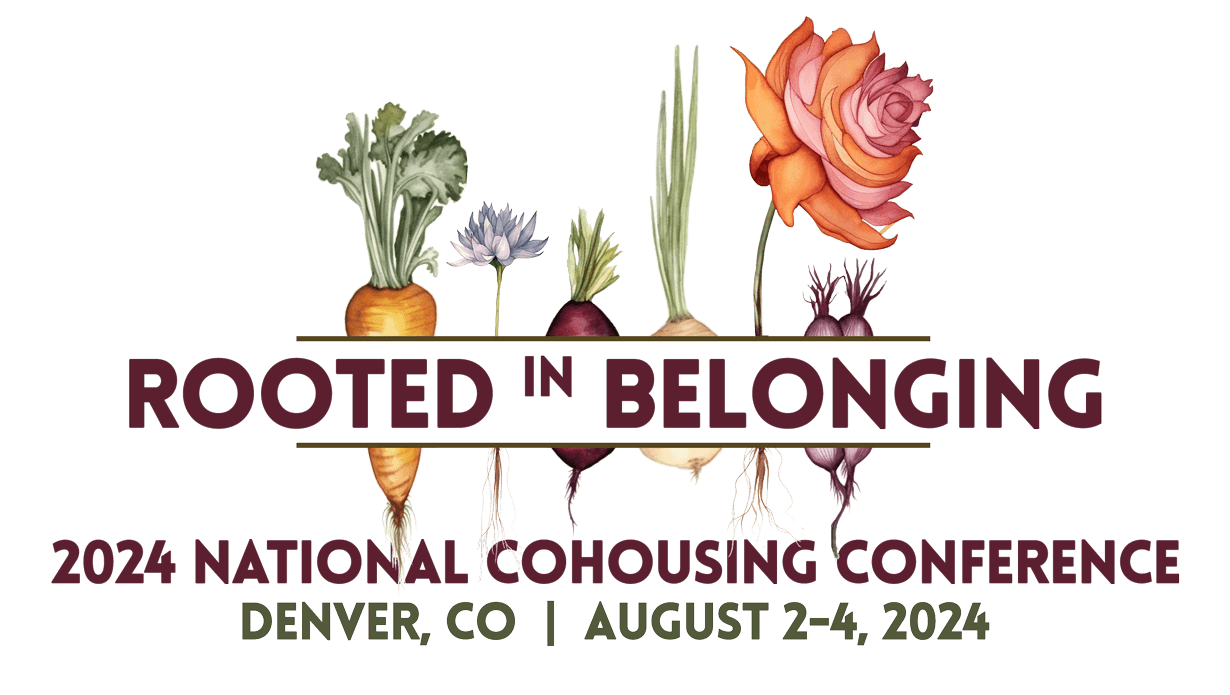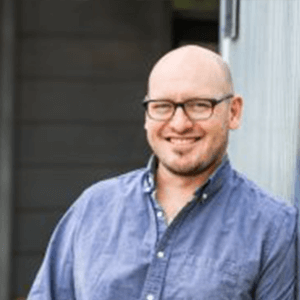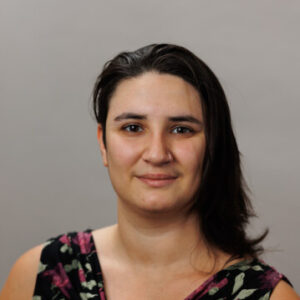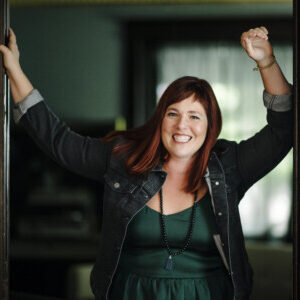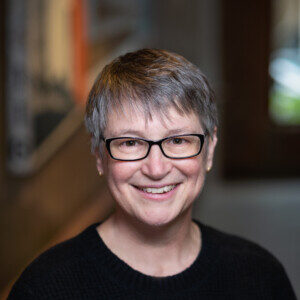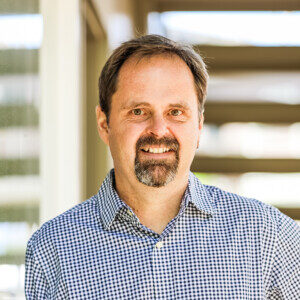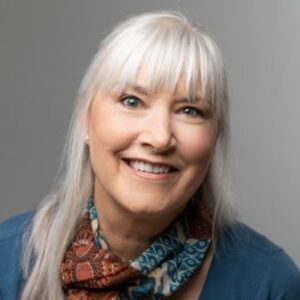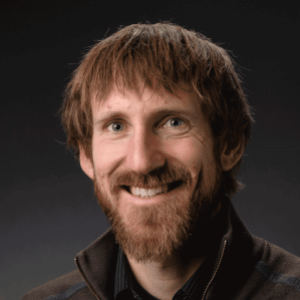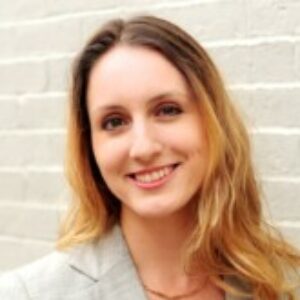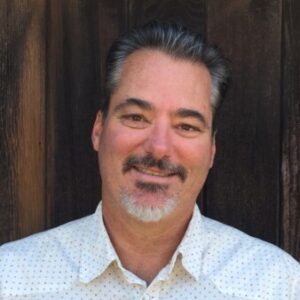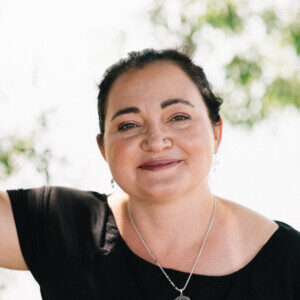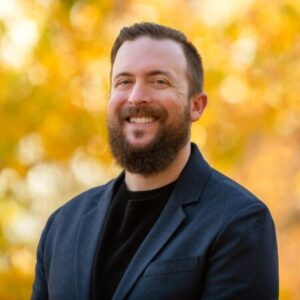Main Menu
Conference Menu
Thursday 1st Aug
Friday 2nd Aug
Saturday 3rd Aug
Sunday 4th Aug
Sunday 8/4 - Schedule
Breakfast Plenary: 7:30am - 9:00am
Breakfast and reflections
Our last plenary session begins with a breakfast buffet, offering a chance to reflect on our time together and gear up for the final breakout sessions. Connect with fellow attendees one last time before we say goodbye.
Session 5: 9:15am - 10:45am
Finding a Site: Fit Tests, Zoning Analysis, and Understanding Density
Location: Tivoli 320A
Theme: Practical skills for the life cycle of a community
Finding a Site: Fit Tests, Zoning Analysis, and Understanding Density
As they search for land, most communities struggle to understand how regulatory limitations and site constraints influence their future site design options. This session is meant to give people an understanding of terms and ideas and to give groups some skills in establishing site feasibility efficiently.
Development Strategies: What is the right path for your community?
Location: Tivoli 320B
Theme: Cohousing Development
Development Strategies: What is the right path for your community?
Choosing your Development Strategy: How do we actually get our project built? How have other groups done this? Should we self-develop? Do we need a developer? What do developers do? How do we find one? What other professionals do we need? Katie McCamant, who has worked as an architect, project manager, development consultant, and developer with cohousing groups for the last 30 years will present how cohousing groups have gotten their projects built, outlining the pluses and minuses of different development scenarios, using real case studies of past and current projects to help participants evaluate the best way for their community to move forward. This session would be excellent prep for the another session that focuses on the details of Partnering with a developer.
Sustainability and Social Justice in Cohousing
Location: Tivoli 320C
Theme: Environmental Sustainability
Sustainability and Social Justice in Cohousing
In this session, Monica will present findings from her dissertation about the relationship between social justice and sustainability in intentional communities. With a specific focus on her findings from interviews and participant observation from cohousing communities, Monica will discuss how sustainability and social justice are related in cohousing communities, what cohousing communities are doing well, and some of the barriers that cohousing communities face in fulling realizing their aspirations for social justice and sustainability. There will be time for group discussion about how these issues show up in the communities that participants are a part of.
You Can Be Right or You Can Be in Community: Lessons + Tools on Culture, Conflict and Trust
Location: King Center 210
Theme: Group Process
You Can Be Right or You Can Be in Community: Lessons + Tools on Culture, Conflict and Trust
Interpersonal conflict and working through tensions can be one of the most difficult elements of choosing a life in community. At the same time, successfully working through conflict and increasing empathy has the opportunity to create even greater trust and connection. Different life experiences with money, race, class, familial experience, etc can all present themselves at pivotal times in our community building and decision making processes. When we come together to live in an intentional community, we must acknowledge and understand our differences as a way to create safe spaces for everyone. Learn from local cooperative housing leaders about their experiences building trust and community as a strategy to prevent conflict through increased empathy and understanding. This interactive workshop will provide you tools to strengthen communication, increase awareness around issues like financial trauma and class differences, and strategies to equip your community to repair conflict when it arises.
Re-Imagining Utopia: How to be the Neighbors We Wish We Had
Location: Tivoli 444 (Lorraine Good)
Theme: Diversity, equity and justice in cohousing
Re-Imagining Utopia: How to be the Neighbors We Wish We Had
Description: For many of us who enter cohousing or imagine living in these communities, we long for them to be a type of Utopia, an escape from or a solution for:
Isolation
Loneliness
Lack of Community
Lack of Diversity and more…
However, very often our communities become a microcosm of the world “out there”. In this session, we will reimagine Utopia. We will think of it not as a place to escape the challenges of society, but rather a community where we cultivate the skills to be the neighbors we all wish we had.
Secrets to Keeping Costs Down
Location: Tivoli 640 (Zenith)
Theme: Innovation in pursuit of Affordability
Affordable Communities - Creative Solutions
Construction costs get built into the project from the very beginning of a project. Knowing how to avoid some of the common pitfalls can make the difference between moving in and abandoning a project.
This session will look at ways to keep construction costs down by controlling the process from the onset.
- Group process – Decision Log & procedure for reopening decisions
- Site selection & due diligence – complexities, infrastructure, sub base
- Density & site planning – more units, fewer buildings
- Building Massing – simplify the structure
- Simplification & stacking – simplify the units, stack kitchens & baths
- Base Finishes – design team driven, maximize value where it counts
- Limited or no options – keep the lid on the allowable modifications
- No changes – don’t double back on past decisions, don’t make changes once it’s drawn
Environmental and Other Kinds of Activism among Cohousers and Members of Building and Forming Groups: An Analysis of First and Second Phase Results from the Cohousing Research Network’s Five-Year Annual Panel Survey
Location: King Center 203
Theme: Cohousing Research
Cohousing research
Is cohousing a potential source of environmental and democratic renewal? Data from the first and second year surveys conducted by the Cohousing Research Network (CRN) so far appear to suggest the answer to this question is “yes”! Many communities are at the forefront of the move toward renewables, and have various forms of environmental sustainability infrastructures and processes in place. The data here seem to confirm this well-known state of affairs. The focus in this presentation and Q & A is on activism and engagement with broader political audiences carried out by community members. Are cohousers active in the wider environmental movement? What is the nature and scope of this involvement? What other movements are cohousers engaged with? Comprehensive analyses of these questions, as well as the question of the consequences of cohousing community activism, await data from the full five-year panel survey. This presentation aims to get a conversation going.
Utopian Ideals: A history of the USA’s Unique Obsession with Intentional Communities
Location: King Center 206
Theme: Building a Movement
Utopian Ideals: A history of the USA's Unique Obsession with Intentional Communities
The USA and Our Unique Obsession with Intentional Communities- A History.
Designing for Neurodiversity
Location: Tivoli 440 (Adirondacks)
Theme: Designing and fostering spaces of belonging

Deborah Finck
Designing for Neurodiversity
People with Intellectual and Developmental Disabilities (IDDs) are an oft forgotten segment of our population. They are often isolated and underserved in the housing market. And while some people with IDDs desire to live alone, the lack of housing options result in many living with their families. As the silver tsunami starts to hit, many parents are realizing that this interdependence is unsustainable for themselves and their children. Many self-advocates and their families are turning to cohousing as a long term housing solution. Learn how this could be a untapped market for cohousing members and how to design the physical community to support the needs of people with IDDs and how that actually supports those aging in place. Presenters will share their own cohousing projects as well as built communities that incorporate holistic universal design principles to support people of all abilities.
Session 6: 11:00 am - 12:30 pm
I’M IN! – Taking your prospects from Interest to Commitment
Location: Tivoli 320A
Theme: Practical skills for the life cycle of a community
I’M IN! - Taking your prospects from Interest to Commitment
You’ve captured the interest of a prospective member, now what do you do? Shelly will share her wealth of experience and best practices including how to quickly assess if your community is the community a prospect is looking for, how to manage a data base of interested people, and how to create a membership path that will keep people moving toward commitment. Shelly will also share her tips on how you can talk with prospective members that will entice them to want to learn more and engage them in the process.
Zoning for Cohousers: Navigating NIMBYs, 15-minute Cities, and More
Location: Tivoli 320B
Theme: Cohousing Development
Zoning for Cohousers: Navigating NIMBYs, 15-minute Cities, and More
Acquiring a site with appropriate zoning or getting a site re-zoned is the existential step that separates perennial potluck clubs from successful cohousing development projects. This session will start with a primer on the structure of land use regulations and key zoning criteria for forming groups seeking land. The session will discuss opportunities and risks associated with re-zoning and zoning code changes, including a case study from Bozeman Cohousing that increased affordable housing opportunities city-wide. While land use has long been a political issue on the local level, campaigns to abolish single family zoning and create walkable cities (15-Minute Cities) are gaining traction and pushback across the nation. The session will describe these trends and how they might impact the approval process of your community.
What Could Go Wrong?
Location: Tivoli 320C
Theme: Cohousing Development; Environmental Sustainability
What Could Go Wrong?
“That’s a great idea, what could go wrong?” What community hasn’t experienced some hubris in its development? Panelists from up to four established communities will share stories of “failure” from their lived experience on 2-3 subjects (eg membership, building/design, finances, governance, carsharing/transportation systems, communication, food production, energy/utilities). With candid storytelling, panelists will divulge examples when we communitarians can be a little naive and overly optimistic and help others avoid some of the same mistakes. This session will touch on several of the conference themes depending on the selected examples.
Trauma and Change Work
Location: King Center 210
Theme: Group Process
Trauma and Change Work
Building something new is the easy part. Leaving behind the old world is another matter. Let’s talk about systems of change, resistance, stagnation, cycles of trauma, healing, and what self care really actually means.
Diversity Troubleshooting
Location: Tivoli 444 (Lorraine Good)
Theme: Diversity, equity and justice in cohousing
Diversity Troubleshooting
How do I make my community more inclusive? Where do I find diverse members? How do I deal with a microaggression committed in my community? Get answers to these questions and more in this interactive session facilitated by diversity consultant Crystal Byrd Farmer. Bring your queries and real-life experiences to learn best practices for creating cohesive and welcoming communities. In this session we will prioritize hearing from marginalized people and honoring the emotional labor that comes with educating others.
Community Land Trust & Cohousing Collaborations for Affordable housing
Location: Tivoli 640 (Zenith)
Theme: Innovation in pursuit of Affordability
Community Land Trust & Cohousing Collaborations for Affordable housing
Provide an overview of the Community Land Trust (CLT) movement for affordable housing, community control of land & resources and how the CLT model can partner with Cohousing groups to bring affordable units to Cohousing developments. Explore the types of partnerships that could be developed using:
- State affordable housing bonus density laws to increase affordable units, including CLT held in trust Inclusionary housing requirements
- Explain Retained Life Estate models and how CLT's can utilize these in both new development and existing cohousing groups
- Explore Limited Equity Housing Co-op models as potential help for 1st time buyers and for creative solutions to creating shared affordable rental units within cohousing groups and how these models can become a ladder to moving into affordable home ownership opportunities
- CLT owned cohousing projects, by finding City/State surplus land
- CLT sponsored affordable ADU's for existing cohousing project, for example; retrofit existing garages to have an ADU above, or take advantage of many State new ADU laws, which would encourage additional small affordable ADU's to be built on existing cohousing properties
- Provide some resources for subsidy/grant funding for the above ideas
Age-Friendly Communities Through an Intergenerational Lens
Location: King Center 201
Theme: Intergenerational connection & aging in community
Age-Friendly Communities Through an Intergenerational Lens
In today's rapidly aging societies, the need for creating age-friendly communities has never been more critical. Such communities seek to provide an environment where younger and older residents can live, work, and play together, enriching each other's lives through meaningful interactions and shared experiences. This session will explore age-friendly communities through an intergenerational lens, investigating the benefits and practical approaches to fostering connections across generations. Through real-world case studies, research-backed insights, and actionable strategies, attendees will gain a deeper understanding of the profound impact that intergenerational engagement can have on fostering a sense of belonging, purpose, and well-being and strengthening co-housing communities overall.
Centering age-friendly principles is a key part of ensuring an inclusive and accessible community. This session will provide actionable examples of how to do this within an intergenerational context ensuring that co-housing communities are welcoming and accessible to all residents.
The session will include presentation and group discussion identifying challenges, opportunities and action steps attendees can take in their own communities.
The Cohousing Research Network Open Forum and Discussion/Exploration of Potential Research Topics
Location: King Center 203
Theme: Cohousing Research
The Cohousing Research Network Open Forum and Discussion/Exploration of Potential Research Topics
This session aims to enhance and broaden the collaborative efforts in and around the Cohousing Research Network (CRN). Participants will engage in a dynamic networking session designed to foster professional connections, explore future research projects, and discuss their implementation. Through our discussions, we will identify opportunities for interdisciplinary collaboration, potential research partners, and contribute to the enrichment of community living research. This session will also provide a platform for exchanging ideas and strategies to amplify the impact and reach of our research endeavors.
The CRN is eager to hear your voice, understand your perspectives, and recognize your unique skills to further our collective mission. We warmly invite you to join us, get to know our community, have some fun, and contribute to shaping the future of community living research together.
Cohousing and Local Government: A Multifaceted Solution
Location: King Center 206
Theme: Building a Movement
Cohousing and Local Government: A Multifaceted Solution
Cities and citizens across the Denver Metro Area will be facing compounding challenges in the coming decades. A lack of diverse and affordable housing, deferred maintenance of critical infrastructure, environmental degradation, increased cost of living, lack of workforce providing care for seniors, and significant challenges in regional transportation networks. In addition to these more quantifiable issues, local government sees the consequences of ignoring the very human and individual challenges around loneliness, substance abuse, and disconnection from community at large. These challenges are broad and systemic, and while cohousing may not be the cure to all ills, this session lays out an ethos for local leadership to design communities for the needs of today and the future.
Introverts Unite! in the privacy of your cohousing community
Location: Tivoli 440 (Adirondacks)
Theme: Designing and fostering spaces of belonging
Introverts Unite! in the privacy of your cohousing community
Do you feel like your voice isn't heard or your opinions don't matter in your myriad of cohousing meetings? Are there dominant members in your community who push people like you aside? You're not alone because 65 percent of the time, a cohouser is an introvert. In this interactive session, participants will learn:
- Who are introverts and extraverts
- Why this matters
- Three World Views: Competitive, Cooperative, Collaborative
- Tactics for introverts to work in an extrovert world
Note: participants should have, but are not required, an internet-capable smartphone, tablet or laptop
(I presented a similar program as a Coho US webchat if you want to kick the tires: https://youtu.be/019EttyFh60?list=PL1N1MlAPIDcOfwyT5NeVCNOFR1HM_CpWq
11:00am – 12:30pm, Learn About 500 Communities
Location: Tivoli 442 (John Good)
Learn About 500 Communities
Have you thought about getting more involved with cohousing? We don't just mean forming a group and living in community, we mean within your line of work. Maybe you're interested in sustainable community design. Maybe you're thinking about in bringing cohousing into your real estate repertoire. Maybe you're pondering what it would be like to be a project manager for developing communities, or how you can help facilitate more communities in your area. Perhaps you are passionate about community and want to help grow the market.
The 500 Communities Program is a 12-month course designed to train collaborators to meet the expanding need for professional support in creating new communities led by Katie McCamant who shares her 35 years of experience creating cohousing. The program is applicable to many different job fields, and was designed with all means of collaborative development in mind. Its intention is not to teach one model of cohousing, but to build on the lessons learned as we explore models of collaborative development not taught in university or trade school. In this session, Katie will introduce the Program and answer questions.
1:00pm – 3:00pm, CO Cohousing Connections
Location: Tivoli Brewery
Colorado Cohousers invite you to celebrate the end of CohoCon2024 with a beer at the Tivoli Brewery. Food and beverage available for purchase. Join us as we say goodbye to another great year!
